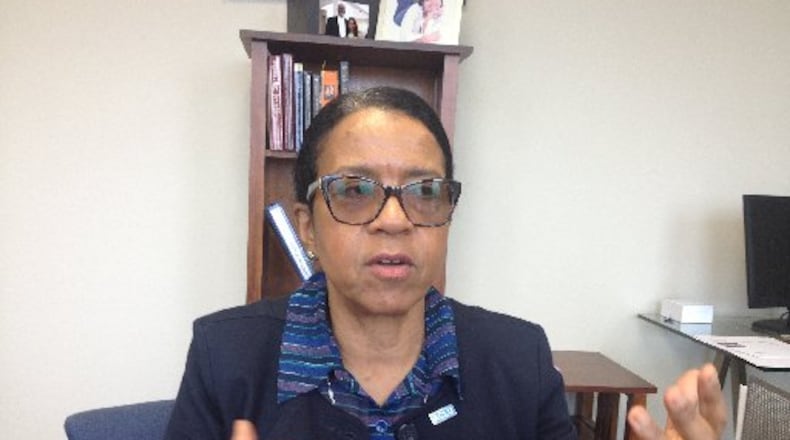The toddler daughter of Elizabeth Handy and Bilal Walk has everything you would expect: a sweet smile, curious nature and finicky tastes.
But, in the eyes of the state of Georgia, the 22-month-old child has no name.
According to Handy and Walk, the Georgia Department of Public Health refused to issue the infant a birth certificate with the last name the couple chose for their daughter: Allah.
The ACLU of Georgia has filed suit on behalf of the couple, who say they can’t get a Social Security number for their daughter because they don’t have a birth certificate. They also anticipate problems with access to health care, schools and travel. Already, they said, they had to cancel a trip to Mexico.
“We have to make sure that the state isn’t overstepping their boundaries,” Walk said. “It is just plainly unfair and a violation of our rights.”
State officials, however, said the child’s name — ZalyKha Graceful Lorraina Allah — does not fit the naming conventions set up by state law. They say that ZalyKha’s last name should either be Handy, Walk or a combination of the two.
The lawsuit names Brenda Fitzgerald, commissioner of the Georgia Department of Public Health, and Donna L. Moore, the state registrar and director of the Office of Vital Records.
In a series of letters written by lawyers representing the Department of Public Health, officials said that based on Georgia code, the state “requires that a baby’s surname be either that of the father of the mother for purposes of the initial birth record.”
General counsel Sidney Barrett wrote that, once the birth record is created, ZalyKha’s surname can be changed through a petition to superior court.
But ACLU of Georgia Executive Director Andrea Young said the state’s decision is an example of government overreach and a violation of the First and 14th Amendments. In addition, Handy and Walk have a 3-year-old son who was given a birth certificate for his name, Masterful Allah, with no problem.
Michael Baumrind, another attorney representing the family, said while it is true that the family is trying to introduce a third surname, it is irrelevant.
“There are numbers of parents who have selected a name for their children,” Baumrind said. “The state has no business determining if a name is satisfactory. The parents get to decide the name of the child. Not the state. It is an easy case.”
With the state’s decision, lawyers for the couple say they have not been able to receive medical coverage under Medicaid and are prevented from obtaining food stamps through the SNAP program.
Carlton F.W. Larson, a law professor at the University of California at Davis, has written extensively about parental rights to name their children.
There is no court decision that the couple could point to that would restrict Georgia from rejecting their case (although in 2014, a Tennessee judge was fired for refusing to allow a family to name their son Messiah), but Larson said the state is clearly infringing on their rights to freedom of speech and equal protection.
“Naming your child is an expressive action,” Larson said. “And the idea that you get to name your child, and not the state, is a fundamental right. The state would need to have a compelling reason for rejecting a name, and I don’t see it. I would hope that (Handy and Walk) would win this case.”
Handy and Walk have been dealing with the state on the issue for at least two year.
ZalyKha was born May 25, 2015. They said they gave her the name because it was “noble,” and it has nothing to do with religion. Allah is the name for God, the Supreme Being, in the Arabic language.
“Simply put, we have a personal understanding that we exercise in regards to the names,” Walk said. “It is nothing that we want to go into detail about, because it is not important. What is important is the language of the statute and our rights as parents.”
Handy said the couple sought out the ACLU after growing frustrated with the state. But there is another urgency.
She is six months pregnant.
“We don’t want to go through that process again,” Handy said. “We are still in the process of coming up with a name, and we don’t even know if it will be a girl or a boy. But the child will definitely have a noble title. Something to live up to.”
About the Author
Keep Reading
The Latest
Featured



